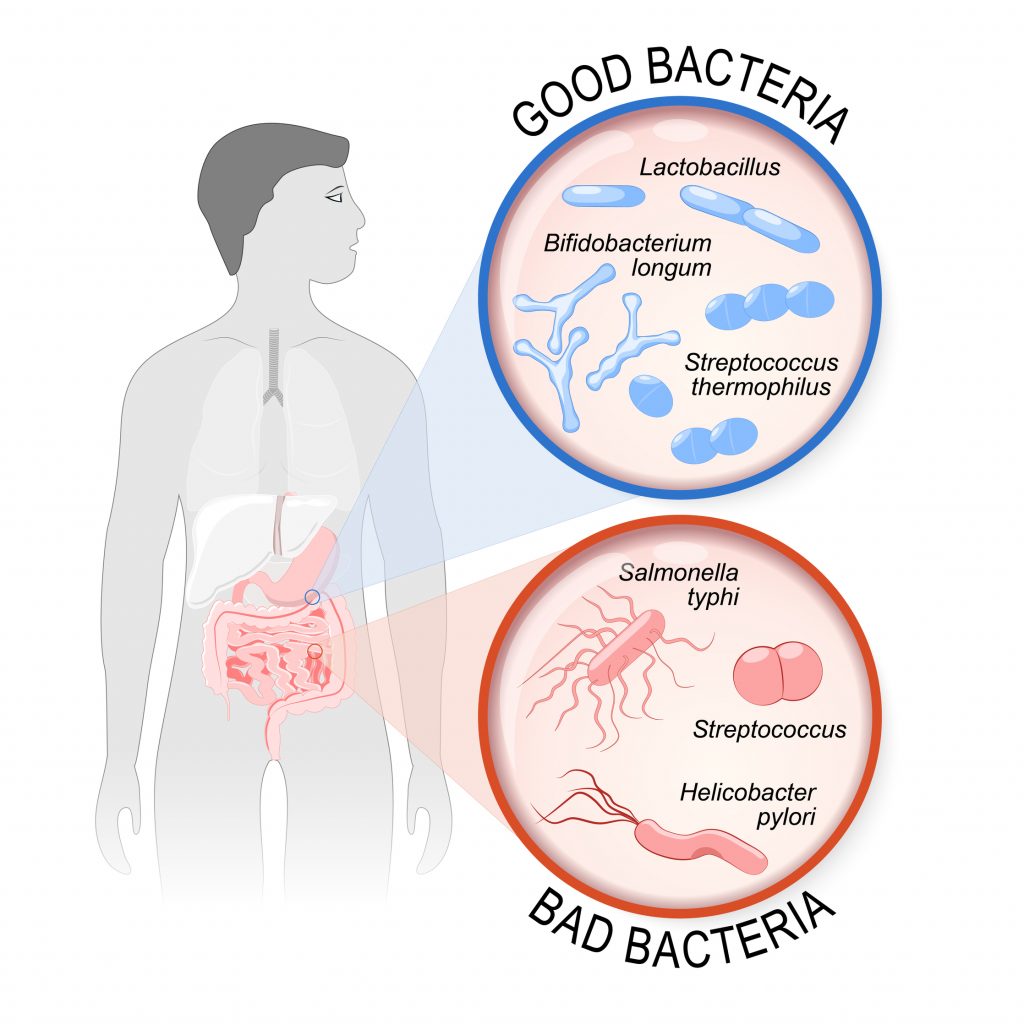Can Gut Bacteria Cause Depression?

As an affiliate, we may earn a commission from qualifying purchases. We get commissions for purchases made through links on this website from Amazon and other third parties.
It’s long been known that the gut and brain are connected, but scientists are only now starting to understand just how intricately they’re linked.
So can your gut bacteria cause depression if it’s not regulated correctly?
Up to 90% of your serotonin is produced in your gut, and when there’s an imbalance of good and bad bacteria, it can lead to a number of health problems, including depression.
There are things you can do to help restore balance to your gut bacteria and improve your mood. Probiotics are one way, and they’ve been shown to be effective in treating depression.
A growing body of research suggests that there may be a strong connection between gut bacteria and mental health, including depression.
While the jury is still out on whether or not gut bacteria can cause depression, there is evidence that probiotics may help improve mood.
Depression is a serious mental health condition that affects millions of people every year. While the root cause of depression is still unknown, scientists are beginning to explore the role that gut bacteria may play in causing and/or exacerbating depression.
There is some evidence that suggests that the gut microbiome – the trillions of bacteria that live in the gut – may play a role in causing depression. For example, one study showed that people with depression had different levels of certain gut bacteria than those without depression.
Additionally, when scientists gave probiotics (healthy bacteria) to people with depression, they found that the probiotics improved the participants’ moods.
While more research is needed to confirm a link between gut bacteria and depression, this area of research is growing rapidly and offers new hope for people who suffer from this debilitating condition. If you think that gut bacteria may be causing or exacerbating your depression, talk to your doctor about ways to improve your gut health.
There are many things you can do to improve the health of your gut microbiome, including eating probiotic-rich foods, taking probiotic supplements, and doing regular exercise.

What is gut bacteria and what do they do in the body
Gut bacteria, or the microbiome, is a diverse community of microorganisms that reside in the digestive tract. There are trillions of these living microorganisms and they all have different roles to play in your health. They help with digestion and metabolism by breaking down food into usable nutrients and vitamins so you can be healthy.
One more way gut bacteria help keep you healthy is by helping to regulate the immune system. They do this by competing with bad bacteria for space and resources, and also by releasing metabolites that help keep the immune system in balance.
A balanced microbiome is a key to keeping your gut health in check, and when it’s not balanced it can lead to problems like intestinal inflammation, gut permeability, and even obesity. So how do you keep your microbiome balanced? By eating a healthy diet and by taking probiotic supplements.
Are there any risks associated with taking probiotics for depression
There are many different types of probiotics, and they come in a variety of forms. Some people might be wondering if there are any risks associated with taking probiotics for depression. The answer to that question is not entirely clear, but there is some evidence that suggests that probiotics could have adverse effects on some people. More research is needed to determine the safety and efficacy of probiotics for depression.
Some of the potential risks associated with probiotic supplementation include bloating, gas, and diarrhea. In some cases, probiotics could also cause allergic reactions or other adverse effects. It is important to speak with a healthcare professional before taking any probiotics, especially if you are pregnant or breastfeeding.
In conclusion
The potential link between gut bacteria and depression is a burgeoning area of scientific inquiry, with researchers still trying to understand the precise way that the two are connected.
Some studies have found that people with depression tend to have different gut bacteria than those without the condition, while others have shown that taking probiotics (beneficial bacteria) can improve symptoms of depression.
At this point, it’s not clear whether gut bacteria causes depression, contributes to it, or is simply a byproduct of it. However, if you’re experiencing symptoms of depression, it might be worth talking to your doctor about your gut health and whether taking probiotics could help.
A quick reminder ..
Probiotics.tips aim to provide the most up-to-date information, help and advice for YOU to make informed decisions. If you are unsure or uncertain and require more clarity, please reach out to us and we will gladly come back and advise you as best we can.
The best means to reach us is via email at info@probiotics.tips or fill out the form on our Contact Us page – click here.
Probiotics.tips
About Us
Our goal is to empower you with concise probiotic guidance for a healthier gut. With expert advice, we provide the knowledge to improve your well-being and navigate the world of probiotics efficiently, ensuring you achieve optimal gut health.
- Can You Take Probiotics While Water Fasting?
- Does Fasting Help Microbiome Diversity and Functionality?
- Does Fasting Help Your Bowels
- Does Fasting Help Probiotics? Understanding Gut Health Benefits
- Does Fasting Help the Gut: Understanding the Impact on Digestive Health
Disclaimer
As an affiliate, we may earn a commission from qualifying purchases. We get commissions for purchases made through links on this website from Amazon and other third parties.
Check these out on Amazon









